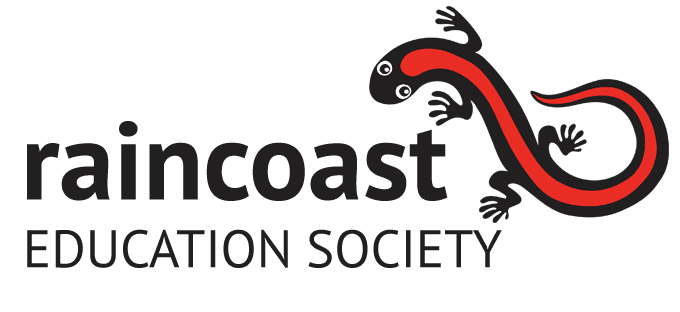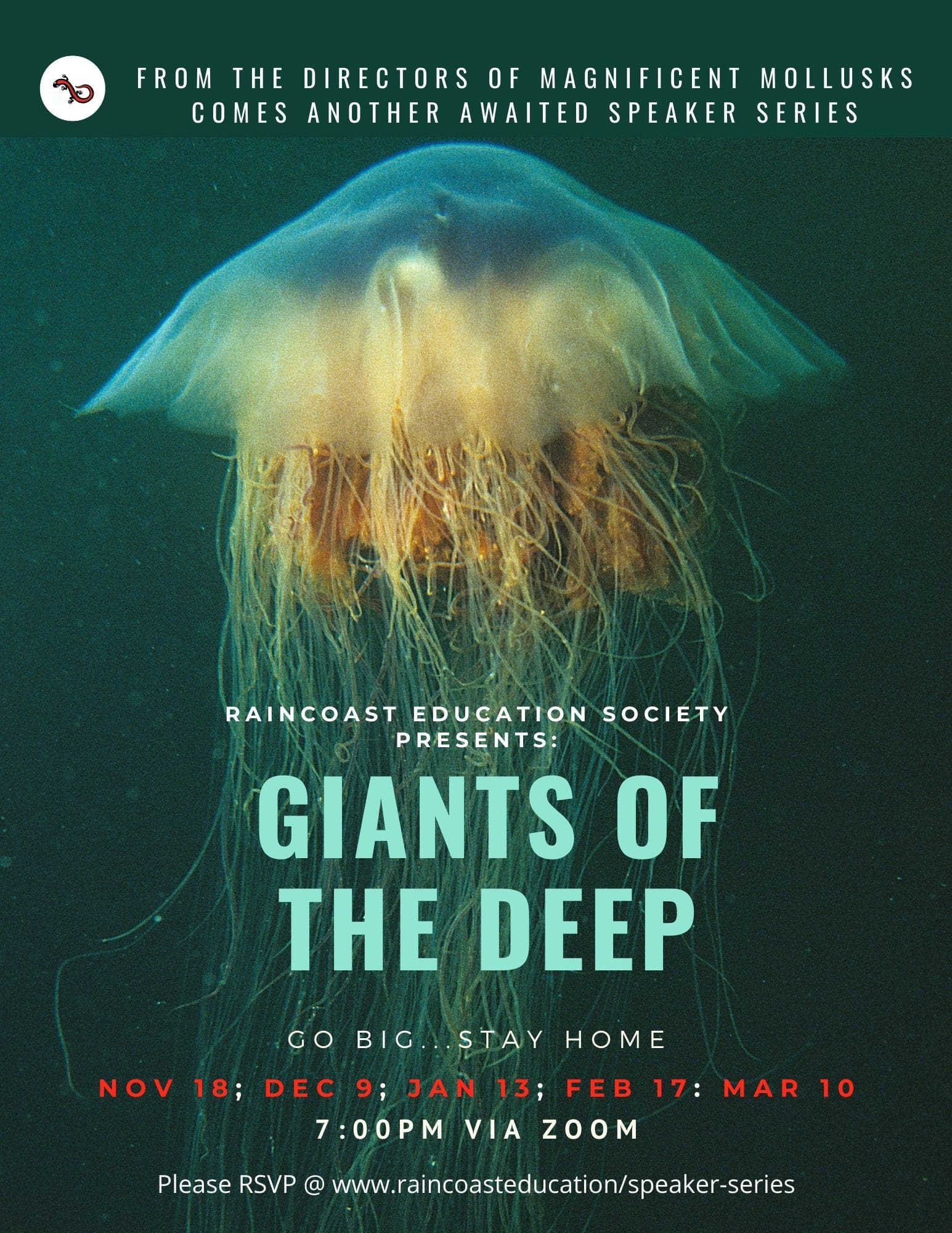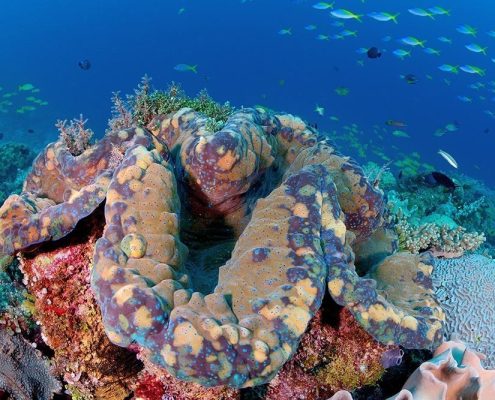2022 Raincoast Speaker Series
“Giants of the Deep”
November 18th: Dr. Marianne Nyegaard, Mola mola
December 9th: Jessica Schaub, Jellyfish
January 13th: Dr. Scott Wallace, Basking Sharks
February 17th: Éadin N. O’Mahony, Rorquals: The Largest Whales on Earth
March 10th: Dr. Danna Staaf, Giant Squid
Rorquals: The Largest Whales on Earth
Éadin N. O’Mahony
Thursday, February 17, 8:00 pm
via Zoom. (note the time change due to the speakers time zone!)
Rorquals –
what a beautiful word, it rolls around your mouth
before unfurling on your tongue.
Rorquals –
what beautiful creatures, the ethereal giants of the deep.
Including the two largest animal species on planet Earth, rorquals are a group of baleen whale species which are characterised by deep ventral grooves that extend from the chin, down the throat to the belly and expand like a bellows to allow the whale to gulp-feed. Most of the rorqual species were hunted during the commercial hunting era, pushing their population numbers to the brink of extinction and leaving many still in dire need of conservation efforts. British Columbia is an important habitat for some of these rorquals, including an unusual occurrence of the predominantly oceanic fin whale in coastal BC. In this presentation, Éadin will focus on the rorquals of BC – taking you through some key aspects of their biology, culture, anthropogenic threats and finally touching on the ongoing research carried out by herself and the rest of the team at BC Whales.
Éadin, pronounced ‘Aid-een’, is an Irish-German marine biologist, coastguard rescue officer and novice potter. When she was a small child, her family moved from the urban jungle of Berlin to the wild Atlantic coast of southern Ireland, where her love of the sea was nurtured. During her undergraduate degree in conservation biology, Éadin had the opportunity to work with the North Coast Cetacean Society, or “BC Whales” – this becoming her very first visit to British Columbia’s Great Bear Rainforest. It didn’t take long for her to get hooked, recognising the integral part whales play in ecosystem health and human conservation efforts. Éadin continued to work with BC Whales for her Masters (by Research), collecting whale blow with drones as a source of DNA for population genetics research. She has just embarked on her PhD journey, together with BC Whales and the University of St Andrews’ Sea Mammal Research Unit (SMRU). Her PhD aims to bring together new and non-invasive genetic sampling techniques, aiming to develop a coastwide biomonitoring network that investigates biodiversity levels in relation to Marine Protected Areas. She is passionate about bringing people and nature together, and dreams of this project bringing together knowledge, biomonitoring tools, data and a care for the sea, to help local communities lead on the protection of their seascapes. Her winters are spent in Scotland, her summers in BC, and she is at her best when out in the elements, in, on or under the sea.
Jellyfish
Jessica Schaub
PhD Student in Oceanography at the University of British Columbia
Thursday, December 9th, 7:00 pm
via Zoom
“Jellyfish: Friend or foe?“
Jellyfish have been in the oceans for 600 million years – they are one of the oldest animal lineages that are still around today. Unfortunately, jellyfish are often seen as pests because of the negative interactions that they have with people. In fact, jellyfish are integral for healthy ecosystems, but they don’t get much credit for it. This session will explore some of the key roles that jellyfish play in the ocean and balance the narrative that is typically associated with these stinging beauties.
About Jessica Schaub:Despite growing up in rural, northern Alberta, Jessica has been drawn to ocean sciences from a young age. In her final months of high school before moving to Vancouver to pursue her degree, Jessica watched a documentary that reported a jellyfish crisis that was unfolding among Japanese fishers. This documentary illuminated the huge knowledge gaps that surrounded jellyfish and pointed to a clear social impact that could be resolved by filling these knowledge gaps. Her interests quickly narrowed, and her entire post-secondary education has been a pursuit of the elusive and enigmatic world of jellyfish ecology. Jessica has been fortunate to conduct research along the BC coast from Calvert Island to Vancouver. Her research has included aerial mapping of jellyfish blooms with drones, figuring out their diets, investigating their microbiomes, and husbandry in aquaria. Jessica is looking forward to her PhD, where she intends to evaluate claims that jellyfish can be considered keystone species.
Our Raincoast Education Speaker Series History
We have hosted a huge variety of quality presentations over the years!



